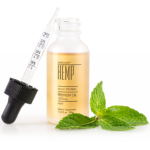A Beginner's Guide to CBD
Hemp 101: Everything you need to know
SHARE:
- April 28, 2020
- at 9:35 am
- | by SUPERGANIX
Over the past few decades, a much stronger interest in health and wellness has blossomed and grown throughout the world. Even more recently, since the start of the coronavirus pandemic, the population has become ever more focused on the topic as priorities have shifted. If you’re new to the world of hemp and CBD, read on to learn more about this rapidly growing phenomenon.
1) WHAT IS HEMP?
Hemp is a variety of the cannabis plant that contains less than .03% THC. Most hemp
plants grown today look and smell the same as traditional marijuana or “weed” does. Once
the hemp plant reaches maturity, it can then be processed through a variety of different
methods, one of which is Supercritical CO2 extraction. This technique extracts targeted
compounds from the plant.
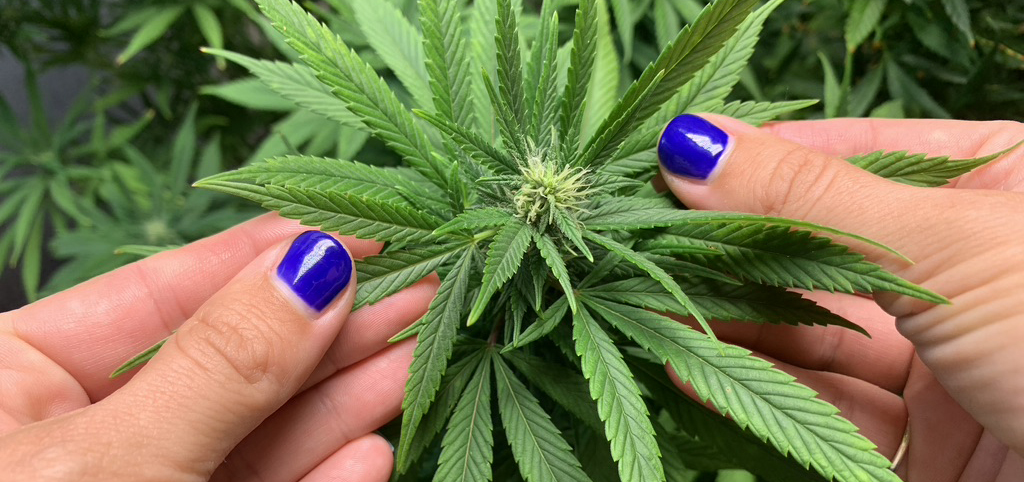
2) WHAT IS SUPERCRITICAL CO2 EXTRACTION?
Supercritical CO2 extraction is the natural and environmentally-friendly way of separating one component from another using supercritical fluids as the extracting solvent. This is how cannabinoids are seperated from the other plant matter. This is also the preferred method by most high-end essential oil companies in order to produce USDA Organic finished products. It yields higher returns and preserves more botanical compounds, and in hemp’s case, that’s cannabinoids, specifically CBD.
3) WHAT ARE CANNABINOIDS?
Cannabinoids are substances that bind to the body’s cannabinoid receptors in the endocannabinoid system. It is thought that the cannabis plant contains around 100 cannabinoids, but only a few of them have so far been studied by scientists. In addition to those cannabinoids, the cannabis plant also contains hundreds of other chemicals. Researchers are still learning how those substances interact to produce the effects the plant has on the human body.
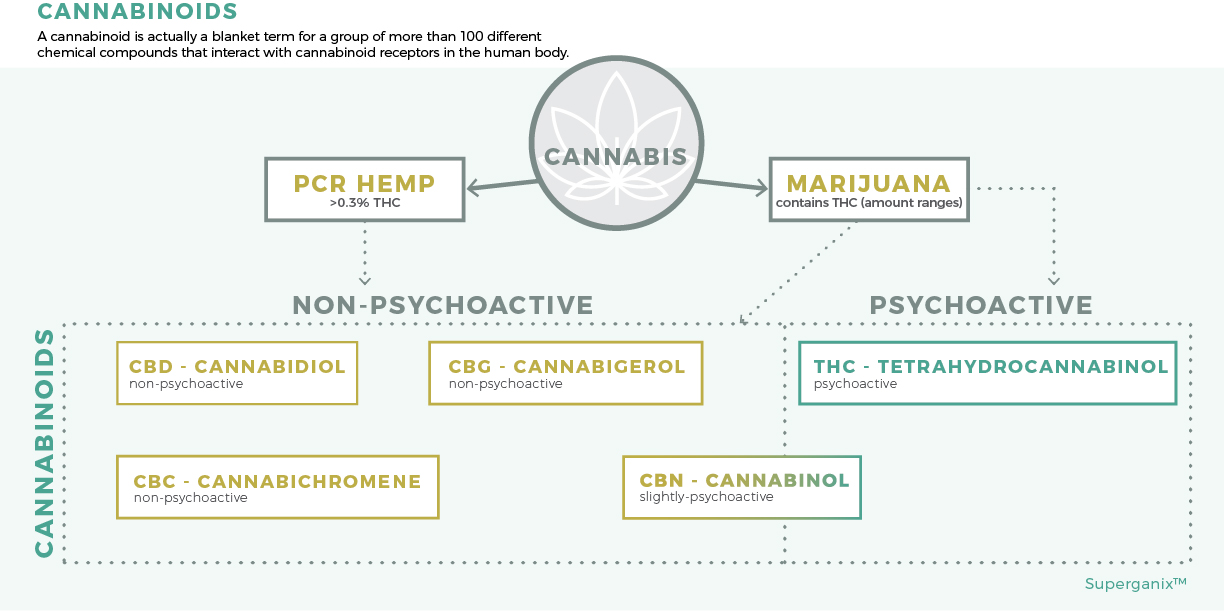
4) WHAT IS CBD?
As mentioned, the cannabis plant contains 100+ different known cannabinoids, one of which is CBD. CBD, or cannabidiol, is one of the main active ingredients of cannabis. Today, it is often used as an oil or a tincture because it is thought to have numerous health benefits. CBD is not psychoactive, unlike THC, which is the part of the cannabis plant that causes the “high” associated with marijuana.
5) IS CBD SAFE?
CBD is generally thought to be safe and well-tolerated, to the extent that physicians are investigating the potential for using CBD in the treatment of many chronic conditions. A generally healthy person taking low doses of CBD is unlikely to experience adverse effects. With that said, there is some risk of drug interactions if CBD is taken by someone who is on other prescription medications. Research into the use of CBD in a clinical setting is still ongoing. Consult your doctor before taking CBD if you have any pre-existing medical conditions.
6) WHAT ARE THE BENEFITS OF CBD?
Over the last few years, researchers have found many benefits associated with CBD. It is thought to help to reduce anxiety and improve sleep quality, offer relief of otherwise difficult to treat pain, work as an anti-inflammatory, provide relief for fibromyalgia patients, reduce stress, and even potentially improve the balance of good and bad cholesterol.
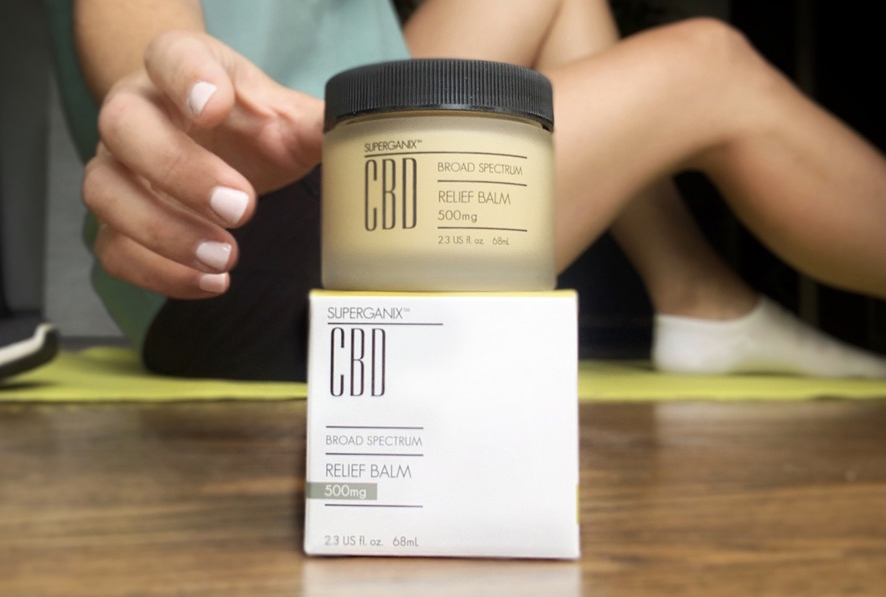
7) WHERE DOES CBD COME FROM?
CBD, at least in the form that is commonly sold in stores, can be directly extracted from the hemp plant. Hemp is the sister crop to marijuana, being essentially the same plant (both are cannabis), but bred to produce zero, or near-zero, THC. This is important because while there are many medicinal uses for cannabis and cannabinoids, THC-containing cannabis is not legal in all parts of the world, or even all states (it’s only legal in 33 states so far). CBD, which is free from THC, offers many of the same benefits and is “conditionally legal” to use in all 50 states.
8) IS CBD LEGAL IN MY STATE?
The federal government recently passed the 2018 Farm Bill to define that industrial hemp (containing less than .03% THC) is no longer a restricted plant, nor are its byproducts. The confusion we keep hearing about with the FDA and CBD, is with the actual word “CBD” being marketed to consumers as “CBD.” The industry is now shifting towards labeling products as “Hemp” and “Hemp Extract” to comply with the FDA guidelines. Always review the Certificate of Analysis (COA) to ensure the cannabinoid contents of your product, as hemp oil and hemp seed oil are two different products and only hemp oil contains CBD.
9) WHAT IS A CERTIFICATE OF ANALYSIS (COA) ON CBD PRODUCTS?
A Certificate of Analysis (COA) is a certified lab document that details the contents of the cannabinoids and shows testing results that no harmful contents are present. This is also particularly important for people who are consciously avoiding THC. When purchasing a CBD product, it’s critical to make sure the company offers a legitimate COA from a third-party lab test. If the company doesn’t offer a COA, it’s probably best to move on and find another CBD company.
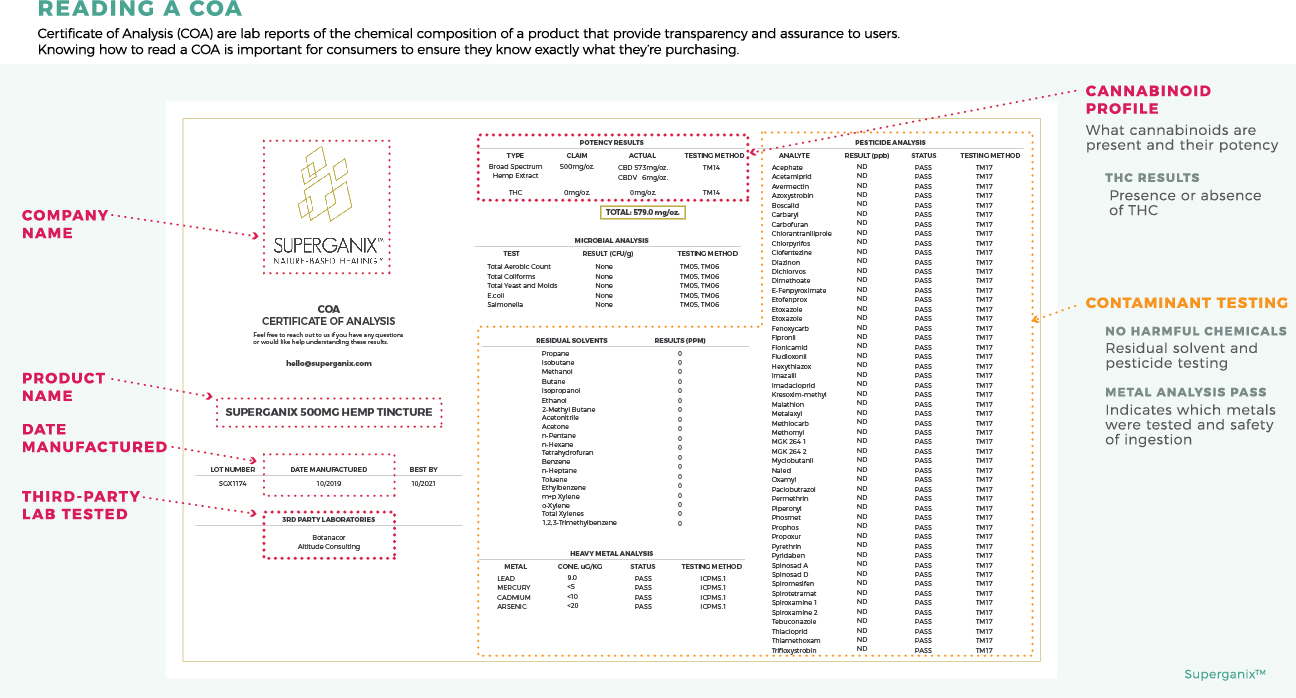
10) WILL CBD SHOW UP ON A DRUG TEST?
CBD should not show up on a standard drug test, as long as the product contains no THC. If, however, the product is contaminated with THC this may make you fail a drug test. If you expect to be taking a drug test in the near future, be careful to ensure that any CBD you use is either broad spectrum or an isolate, both do not contain THC. Always review the product’s COA.
11) WHAT CBD PRODUCTS ARE BEST FOR ME?
Luckily, these days CBD comes in almost any product you can imagine. Trends with consumers in 2020 are still pointing to the most popular products such as, oils and tinctures, edibles, and topicals. Sublingual oils and tinctures can be quite effective and have a longer lasting effect. Gummies and other edibles offer a pleasant sweet experience and also have lasting effects. Topical applications are popular with those who are struggling with arthritis or other acute physical discomforts. In these cases, broad spectrum CBD balms are a good idea if you want to get the beneficial effects of not just CBD, but other cannabinoids as well.
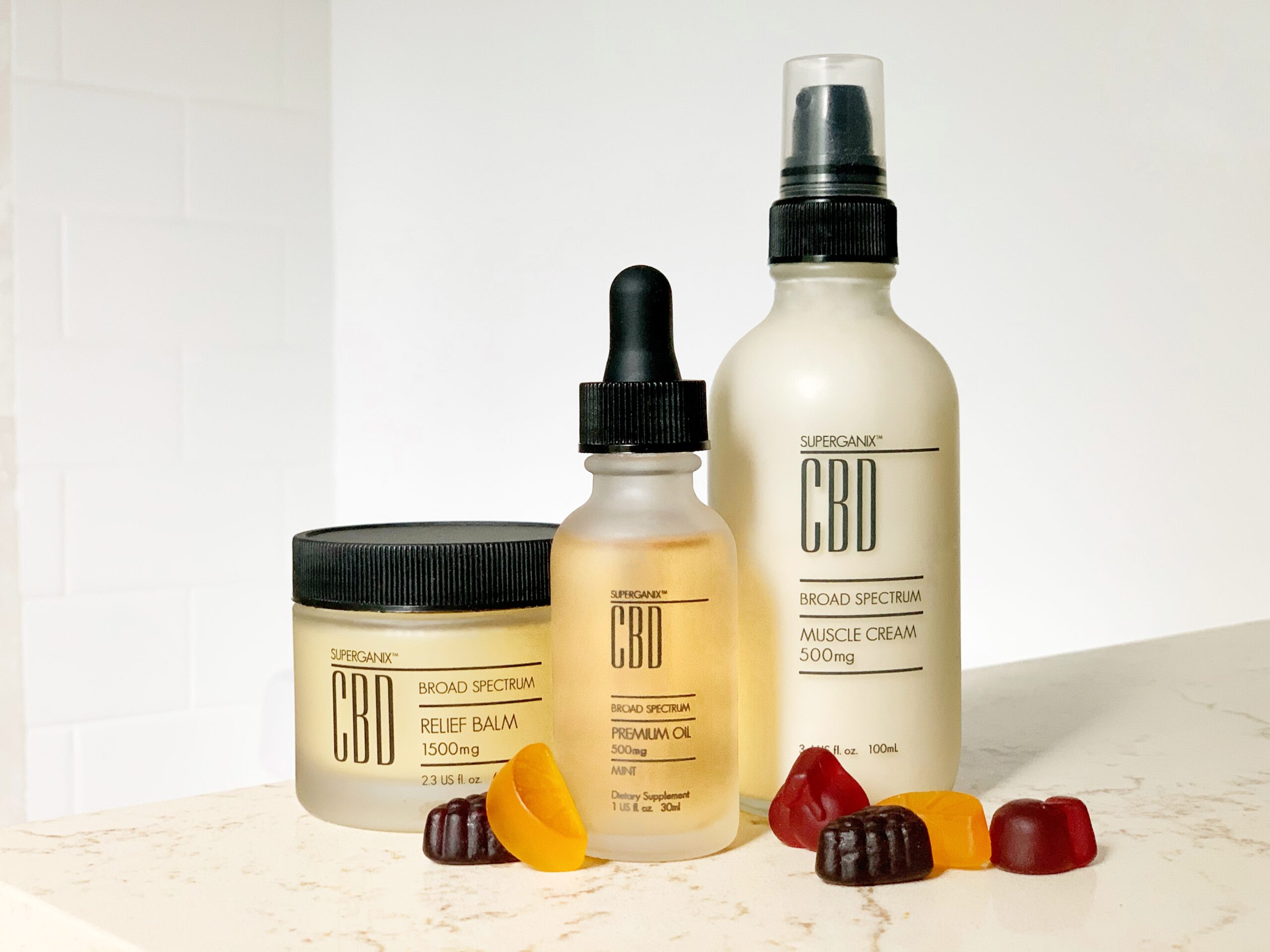
12) WHAT CBD DOSAGE SHOULD I START WITH IF I’M A NEWBIE?
The right CBD dose depends on your weight, the type of condition you’re treating (or your goals from taking CBD), the concentration of CBD in the product you are consuming, and how you react to CBD in general. Everyone is unique, so it takes experimentation and time to figure out what works best for you as an individual. In general, a dose of 20mg to 40mg per day is a good starting point. If, after a week, you don’t notice any improvement in your symptoms, increase the dose by 5mg. Repeat until you reach a dose that works for you. Like all supplements, it’s recommended to take CBD 10-14 days in order to get it on board in your system. Generally, the more continuous and consistent the use, the better and more accurate the results.
13) WHAT’S THE DIFFERENCE BETWEEN WEED AND CBD?
Weed is the colloquial name given to the variety of cannabis plant, known specifically as marijuana, that is traditionally smoked. The marijuana plant contains THC in addition to other cannabinoids, including CBD. CBD is just one single (non-psychoactive) cannabinoid that can be extracted from the hemp strain of cannabis plants. Most commercially available CBD is extracted from hemp. The simple explanation is Hemp has under .03% THC, and “weed” or marijuana contains more than .03% THC.
14) CAN YOU TRAVEL WITH CBD?
The TSA says that passengers may travel within the United States with CBD as long as the product contains less than 0.3% THC. Check the COA of any CBD products you purchase to ensure that you are within this limit. It is best to put your CBD in your checked luggage to ensure compliance with any liquid restrictions in place.
15) IS CBD SAFE FOR PETS?
It has become popular for pet owners to give their animals CBD products. It’s important to note that the safety of CBD for dogs and other pets has not been researched and any ‘recommended dosing’ is guesswork. Regardless, many veterinarians are recommending CBD for animals with certain conditions. For example, early studies suggest it could help with pain management in osteoarthritic dogs. Cats appear to process CBD differently to dogs, and doses that appear safe for dogs sometimes cause side-effects in cats.
If you are considering giving CBD to a pet, seek guidance from a veterinarian first to ensure
that you are giving them an appropriate dose. Any ‘safe’ dose for a pet will be much smaller
than the recommended dose for an adult human, and giving a pet too much could cause unwanted side effects.
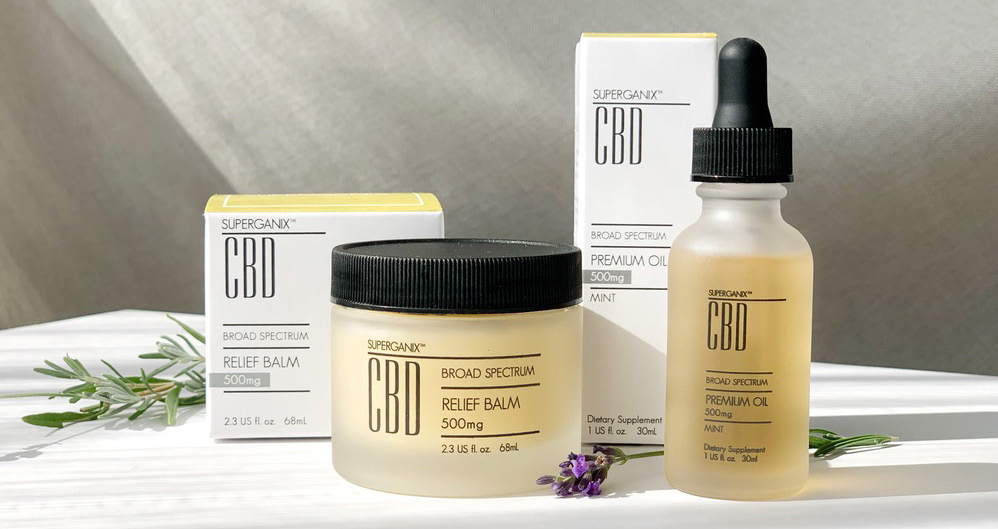
If you’re curious about CBD and would like to try some natural hemp or CBD products, take a look at the range in the Superganix™ store. We have balms, oils, and creams to suit all preferences, including zero THC CBD.
